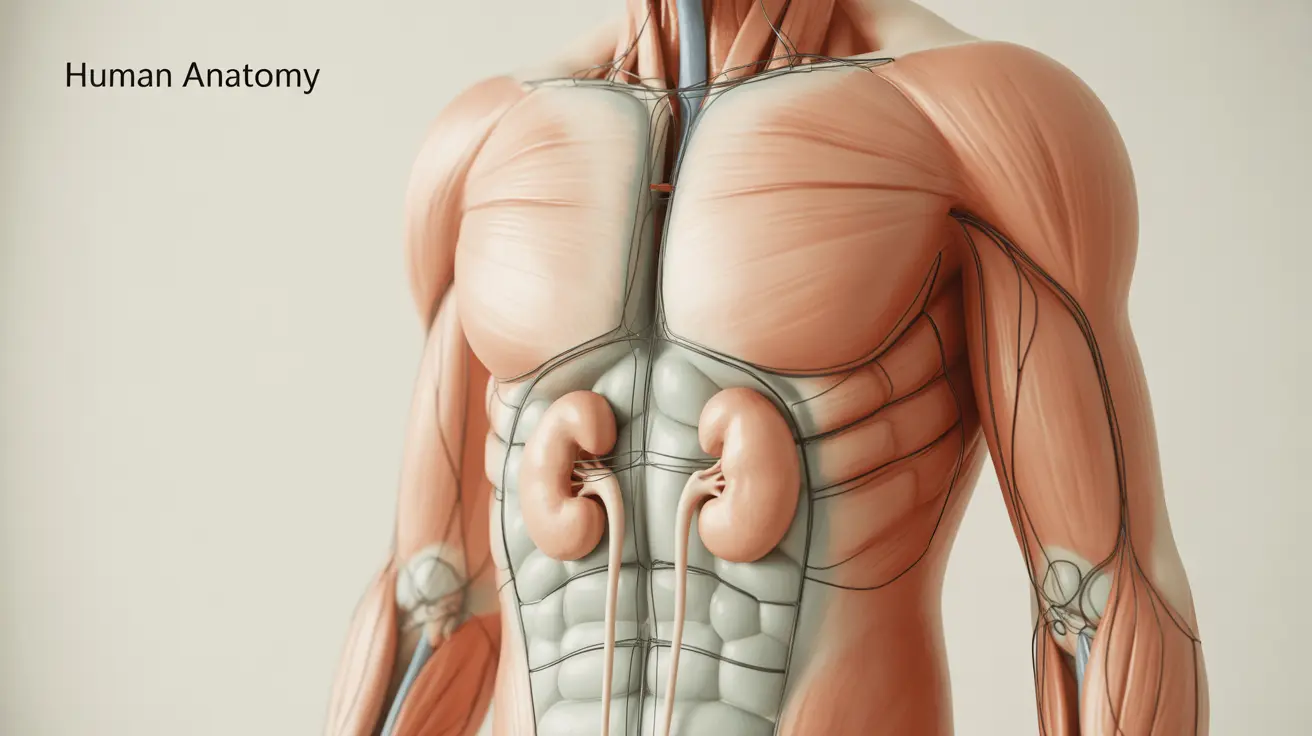When lymph nodes near the kidney become enlarged, it can be a concerning sign that requires medical attention. These swollen nodes may indicate various conditions, including lymphoma affecting the kidney region. Understanding the symptoms, diagnostic process, and available treatments is crucial for anyone experiencing or concerned about enlarged lymph nodes in this area.
This comprehensive guide explores the key aspects of enlarged lymph nodes near the kidney, including what causes them, how they're diagnosed, and what treatment options are available. We'll also discuss the relationship between these enlarged nodes and kidney lymphoma, a specific type of cancer that can affect this area.
Understanding Enlarged Lymph Nodes Near the Kidney
Lymph nodes are small, bean-shaped structures that form part of the body's immune system. When they become enlarged near the kidney area, it often indicates that the body is fighting an infection or that there may be a more serious underlying condition requiring medical evaluation.
Common Causes of Enlarged Lymph Nodes
Several factors can lead to enlarged lymph nodes near the kidney:
- Infections (bacterial or viral)
- Inflammatory conditions
- Lymphoma or other cancers
- Autoimmune disorders
- Medication reactions
Signs and Symptoms
Enlarged lymph nodes near the kidney may present with various symptoms that shouldn't be ignored:
- Back or flank pain
- Abdominal discomfort
- Unexplained weight loss
- Night sweats
- Persistent fatigue
- Fever or chills
- Changes in urination patterns
Diagnostic Process
When enlarged lymph nodes are suspected near the kidney, healthcare providers typically follow a comprehensive diagnostic approach:
Initial Assessment
- Physical examination
- Medical history review
- Blood tests
- Urinalysis
Advanced Imaging
Doctors may use various imaging techniques to evaluate enlarged lymph nodes:
- CT scans
- MRI
- Ultrasound
- PET scans
Biopsy Procedures
A biopsy may be necessary to determine the exact cause of the enlarged nodes and guide treatment decisions.
Treatment Approaches
Treatment for enlarged lymph nodes near the kidney depends on the underlying cause:
Conservative Management
- Monitoring and observation
- Antibiotics for bacterial infections
- Anti-inflammatory medications
- Supportive care
Advanced Treatment Options
For more serious conditions like lymphoma:
- Chemotherapy
- Radiation therapy
- Targeted biological therapies
- Immunotherapy
- Surgery in some cases
Frequently Asked Questions
What are the common symptoms of enlarged lymph nodes near the kidney that could indicate kidney lymphoma? Common symptoms include persistent back pain, unexplained weight loss, night sweats, fever, and fatigue. You might also experience changes in urination patterns or abdominal discomfort.
How is kidney lymphoma diagnosed when enlarged lymph nodes are found near the kidney? Diagnosis typically involves multiple steps, including physical examination, blood tests, imaging studies (CT, MRI, PET scans), and usually a biopsy of the affected lymph nodes to confirm the presence of lymphoma cells.
What treatment options are available for lymphoma that causes enlarged lymph nodes around the kidneys? Treatment options typically include chemotherapy, radiation therapy, targeted biological therapies, and immunotherapy. The specific treatment plan depends on the type and stage of lymphoma, as well as the patient's overall health.
Can enlarged lymph nodes near the kidney cause pain or other kidney-related symptoms? Yes, enlarged lymph nodes near the kidney can cause flank pain, back pain, and may affect kidney function, leading to changes in urination patterns or discomfort in the kidney area.
What is the prognosis for patients diagnosed with kidney lymphoma and enlarged lymph nodes near the kidney? The prognosis varies depending on several factors, including the type and stage of lymphoma, the patient's age and overall health, and how well they respond to treatment. Early diagnosis and appropriate treatment can significantly improve outcomes.




